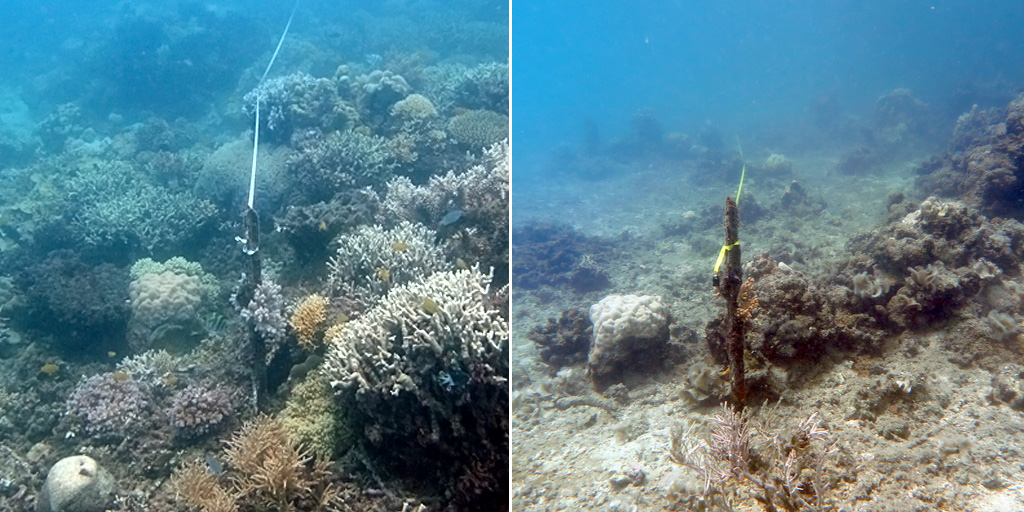
Global S&T Development Trend Analysis Platform of Resources and Environment
| More intense cyclones pose threat to the world’s coral reefs | |
| admin | |
| 2017-01-27 | |
| 发布年 | 2017 |
| 语种 | 英语 |
| 国家 | 澳大利亚 |
| 领域 | 资源环境 |
| 正文(英文) | In the wake of the Great Barrier Reef’s most intense coral bleaching event, researchers at the Australian Institute of Marine Science (AIMS) report that predicted increases in the intensity of tropical cyclones due to climate change could greatly accelerate coral reef degradation and make it far more difficult for reefs to bounce back from disturbances. Research published today in Global Change Biology investigated whether predicted increases in cyclone intensity might change the nature of coral reefs. AIMS scientists used the world’s largest coral reef ecosystem, the Great Barrier Reef, as a test case to understand what lies ahead for coral reefs. A team of researchers led by AIMS scientist, Alistair Cheal, first assessed the ecological impacts to the Reef from cyclones, based on multiple data sets collected from the region. The Institute’s Long-term Monitoring Program contributed crucial broad-scale field data from as far back as 1996, including data captured after recent severe cyclone events (Hamish in 2009, Yasi in 2011 and Ita in 2014).
“Here at AIMS, we have been closely monitoring reefs along the Great Barrier Reef for over 20 years through the Long-term Monitoring Program. An analysis of the data collected from outer reefs indicates that a recent spate of unusually intense cyclones caused record destruction of corals and great loss of fishes over >1000 km,” stated Mr Cheal, the study’s lead author. Using modelling tools, the data was then contextualised in terms of future climate-driven threats based on published predictions for increasing cyclone intensity. The scenarios yielded grim consequences for reefs. “What we found was that the return time of cyclone sequences likely to cause extreme and widespread losses of corals and fishes could increase from hundreds of years, to once every 25 years within this century. This presents a real threat to the status and recovery of coral reef ecosystems,” Mr Cheal concluded. The implications extend beyond the projected coral and fish losses through associated decreases in biodiversity, increased vulnerability of coral reefs to long-term degradation and associated flow-on effects to social and economic services. The paper: “The threat to coral reefs from more intense cyclones under climate change” by Alistair J. Cheal, M. Aaron MacNeil, Michael J. Emslie and Hugh Sweatman is available online today. |
| URL | 查看原文 |
| 来源平台 | Australian Institute of Marine Science |
| 文献类型 | 新闻 |
| 条目标识符 | http://119.78.100.173/C666/handle/2XK7JSWQ/233033 |
| 专题 | 资源环境科学 |
| 推荐引用方式 GB/T 7714 | admin. More intense cyclones pose threat to the world’s coral reefs. 2017. |
| 条目包含的文件 | 条目无相关文件。 | |||||
| 个性服务 |
| 推荐该条目 |
| 保存到收藏夹 |
| 查看访问统计 |
| 导出为Endnote文件 |
| 谷歌学术 |
| 谷歌学术中相似的文章 |
| [admin]的文章 |
| 百度学术 |
| 百度学术中相似的文章 |
| [admin]的文章 |
| 必应学术 |
| 必应学术中相似的文章 |
| [admin]的文章 |
| 相关权益政策 |
| 暂无数据 |
| 收藏/分享 |
除非特别说明,本系统中所有内容都受版权保护,并保留所有权利。
修改评论